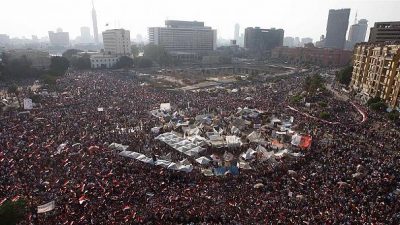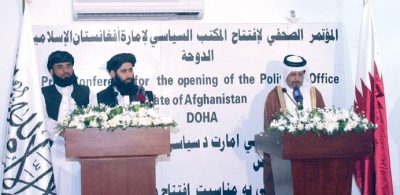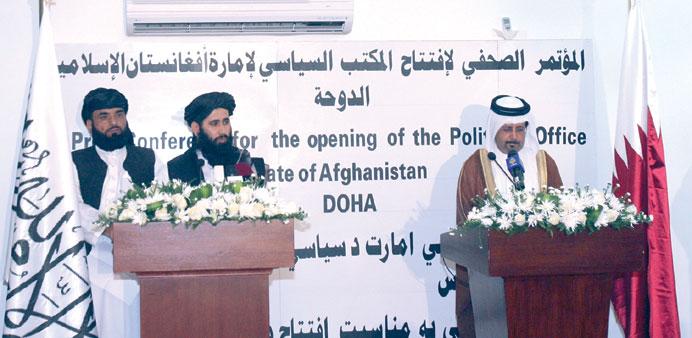IN SYRIA…

Casualty levels are at their highest since the war began.
The civil war – and the four other regional, sectarian and global wars that have emerged from it – continues. Conditions on the ground continue to deteriorate – the UN has just reported that as many as 5,000 Syrians are being killed by the war every month, and about 6,000 Syrians are fleeing the country every day, making this the worst refugee crisis since the 1994 Rwandan genocide. According to the UN High Commissioner for Refugees, nearly 1.8 million Syrians are now registered with the UN as refugees in surrounding countries. His counterpart, UN humanitarian coordinator Valerie Amos, noted that four million people inside Syria also need urgent assistance, noting that both the government and the rebels have imposed “considerable restraints” on aid agencies. Her report indicated about $3.1 billion is needed for humanitarian assistance.
Recent reports indicate that the opposition side is in even greater disarray, and fighting between rebel contingents is increasing. According to the New York Times, “In recent weeks, rebel groups have been killing one another with increasing ferocity, losing ground on the battlefield and alienating the very citizens they say they want to liberate.” Unfortunately, the voices of the original democratic political opposition, still surviving, barely, and trying to work inside Syria despite incredible odds, remain missing from mainstream discourse.
In a recent piece I did for Red Pepper magazine in the UK, I analyzed the dangers of the current escalations. U.S. policy, however, remains focused on assistance to the rebels and not nearly enough on supporting the UN’s humanitarian work. I’ve been focusing a lot on the threats of greater U.S. intervention, as well as the regional and global ramifications of the Syria war. In an interview on Behind the News, my focus was on the danger of arming the rebels. And in a discussion on The Real News Network, I talked about why such escalation in providing arms to the opposition will only make things worse – for Syrians, for the region, for people in the U.S., for the world. And in an interview on RT, we talked about the Syria war in the context of the history of U.S. neo-colonialism in the Middle East, and the continuing danger of permanent war.
The good news is that so far, the Obama administration has not made good on its announced plan of escalating direct military support to the armed opposition. This reflects two realities. First, there are clearly internal calculations underway about the dangers of such proxy support. Given the self-proclaimed al Qaeda links and hard-line Islamist identity of the most powerful opposition organizations, memories of the disastrous U.S. backing for the Afghan mujahedin during the 1980s and resulting creation of al Qaeda, have to serve as a strong deterrent. Also, it turns out that the White House “lawyers group” is raising serious unease about how arming the rebels would violate international law. Kind of amazing – but reported in the Wall Street Journal.
And second, public and Congressional opinion are powerfully opposed. Seventy percent of the public oppose sending arms to the Syrian rebels. And in Congress, despite loud calls for greater military intervention from powerful individual senators including John McCain, all of the amendments and resolutions introduced and now pending in both the House and the Senate would prohibit U.S. funding of various combinations of military assistance and direct military involvement.
SIGN THE PETITION!
We can’t count on this scenario remaining however. So representatives of national peace organizations met over the last couple of weeks, and we put together a petition calling on both the Obama administration and Congress not to escalate military involvement in Syria. The “ask” reads:
We urge you to reject any military intervention in Syria, including arming the rebels or creating a no-fly zone, and instead to focus on increasing humanitarian assistance through the United Nations and building active multi-lateral diplomacy without preconditions with all involved parties for an immediate ceasefire, a full arms embargo, and negotiations to end Syria’s civil war.
Along with us at IPS, the sponsoring organizations include the Friends Committee on National Legislation, Just Foreign Policy, Peace Action, the Peace and Justice Resource Center, United for Peace and Justice (UFPJ), U.S. Labor Against the War (USLAW) and Women’s Action for New Directions (WAND). There will be more later, joint education and advocacy campaigns and more, but for now, the petition could help prevent immediate escalation.
Please sign it, and send it out to your friends, colleagues, comrades and more. For Facebook and Twitter, a short version of the link is here.
IN EGYPT…

Political support for the coup was strong, but the military remains in control.
And over the last couple of weeks, the devastating war in Syria was almost gone from public consciousness as the latest crisis in Egypt exploded. Massive popular protests against the democratically-elected President Mohamed Morsi and the Muslim Brotherhood that backed his political party, culminated in the Egyptian military’s move to depose Morsi in what must be called a military coup d’etat.
The U.S. has refused to use the word, since U.S. law requires that all military and economic aid be cut to any country where the military deposes an elected government by force. And whether one uses the word ‘coup’ or not, that is precisely what happened in Egypt. It was certainly true that the overthrow of Morsi had enormous popular support; civil society organizations claimed that 22 million people signed their petition calling for him step down. But any time the military takes the critical action of deposing an elected president, as the Egyptian military did against their own longstanding U.S.-backed dictator Hosni Mubarak at the height of the Tahrir Square protests in early 2011, the result is always dangerous.
I wrote my first analysis of the Egyptian crisis just a couple of days after Morsi’s overthrow, looking at the “Celebrations and Dangers” facing Egypt’s revolutionary processes. One of the greatest dangers is that with the military so overtly in control of the country (we shouldn’t forget the military didn’t really leave politics when the returned to their barracks after Morsi’s election, they just moved backstage) the U.S. has far more influence in Egypt, since so much of U.S. aid goes directly to the military. While Saudi Arabia, Qatar and other Gulf states have pledged billions more to Egypt now, staying in good graces with Washington remains key for Cairo, and that means U.S. priorities (privileged access to the Suez Canal, access through Egyptian airspace and sometimes bases, cooperation in “anti-terrorism” actions and most of all maintaining close ties with Israel) will remain the priorities of Egypt’s “new” interim government.
Parts of that piece are probably already dated. But some remains sadly current:
Egypt remains as polarized as perhaps any country but Syria in the entire region – the threat of civil war is not out of the question. And beyond the threat of violence in the streets, having the military in control means that US influence is much greater – because the Egyptian military is thoroughly dependent on the US for economic support and access to weapons. After the overthrow of Mubarak, the US promised around a billion dollars in economic and development aid for the ‘new Egypt.’
But less than a quarter of that has actually been sent. On the other hand, the $1.3bn the Egyptian military receives in US tax dollars every year has continued to flow in full and on time. (It’s not clear whether military aid to Egypt even faced any sequester-based reduction, since the Pentagon has a lot more flexibility in its accounts than domestic programs do.)
Eighty percent of all Egyptian arms purchases are enabled by US tax dollars, and the US (along with the UK on a much smaller scale) continues to provide training for the Egyptian officer corps. However they choose to use it, the Obama administration and the Pentagon hold enormous potential capacity to influence the military’s trajectory. And that too bodes badly for the Egyptian people’s ability to realize the goals of what they still call their revolution.
You can read the rest of it on the al-Jazeera website here.
SECRETARY KERRY ON THE MOVE AGAIN…
Not to Egypt, however. Absent a clear policy, the U.S. sent an undersecretary to meet with whoever was willing (note: not too many were) to chat with him in Cairo.
But Secretary of State John Kerry remains on the move in the region, shuttling Kissinger-style between Jerusalem, Ramallah, and more recently Amman. (It’s so much easier for him to meet with Palestinian representatives there in Jordan, and not have to deal with all the embarrassing efforts to “not notice” the Apartheid Wall, the wildly expanding settlement growth, and Israel’s massive violations of international law in the occupied territories…) The latest news is a breathless report that the Arab League and the Jordanian King are all backing Kerry’s effort to get the two sides back to the table! It’s based on Kerry’s resurrecting the decade-old Arab Peace Plan, with – wait for it – a small “adjustment.” The adjustment, of course, would completely negate whatever value that plan ever had – it called for Arab recognition of and normalization with Israel in exchange for “full” Israeli withdrawal from the occupied territories – meaning Gaza, all of the West Bank, and Arab East Jerusalem. Kerry’s version adds the Israeli demand for “mutually agreed swaps” of land – giving Israel full veto rights over any agreement. So the talks –these talks – aren’t going anywhere.
There is some good news however – it’s just not shaped by Washington’s 21 year-old failed “peace process.” First it’s from Europe. As Yousef Munayyer, director of the Palestine Center here in Washington described it in al Jazeera:
The European Union, Israel’s largest trading partner, has finally moved to leverage that relationship in the interest of changing Israel’s colonial behavior. News broke yesterday of new guidelines for trade between the EU and Israel. The EU directive instructs ‘all 28 member states, ‘forbidding’ any funding, cooperation, awarding of scholarships, research funds or prizes to anyone residing in the Jewish settlements in the West Bank and East Jerusalem.’
The actual rules haven’t been released yet, but a leaked copy is available here (PDF).
It’s only a small step, since, as Ha’aretz columnist Gideon Levy noted, the settlements are inherent to Israel. Proclaiming his own support for the Palestinian-initiated global BDS movement (boycott, divestment and sanctions), Levy said “the distinction between products from the occupation and Israeli products is an artificial creation. It’s not the settlers who are the primary culprits but rather those who cultivate their existence. All of Israel is immersed in the settlement enterprise, so all of Israel must take responsibility for it and pay the price for it. There is no one unaffected by the occupation, including those who fancy looking the other way and steering clear of it. We are all settlers.”
But the European move is huge, particularly coming just at the moment of Kerry’s campaign to turn 21 years of failed U.S. diplomacy into 22. Very good news.
AND THE WAR THAT FELL OFF THE FRONT PAGES

Taliban diplomatic office opened, then immediately closed in a spat over signs and labels.
The war in Afghanistan, including the 68,000 U.S. troops and near 100,000 U.S.-paid military contractors, continues. Debate over the pace and size of the troop withdrawal continues, with no decision yet about how many U.S. troops might remain after the official plan for a withdrawal of “combat forces” by the end of 2014.
It is certainly possible that President Obama will be faced with the same inevitability his predecessor did in Iraq – that a refusal of the Afghan government to guarantee immunity for U.S. troops in their country after the current immunity agreement expires in December 2014 would lead to a full withdrawal. No U.S. president, knowing the ubiquity of war crimes and other crimes committed by U.S. troops deployed abroad, especially those serving in unjust and illegal wars, would risk a U.S. soldier facing Afghan justice in response to, just for instance, the killing of Afghan civilians.
The latest pressure facing the Pentagon is that Afghanistan is raising the fees it charges for infrastructure use as the U.S. pulls out its decade-worth of war-fighting equipment. The Washington Post brought Afghanistan back to their front page on July 18th, exposing a new demand by Kabul that the U.S. pay $1,000 for every shipping container headed out of Afghanistan if it doesn’t have a validated customs form. Apparently Washington owes $70 million in fines already. (Imagine what the U.S. would charge other countries trying to move giant shipping containers around and out of the country without the right forms!) It’s possible this is simply an effort by the Afghan government to get access to as much money as possible before the troop pull-out leads to a full abandonment of any economic or humanitarian assistance to their country – though given the level of corruption in that government, it’s unlikely that concern about Afghanistan’s poor is top of their agenda.
In the meantime, some diplomatic moves are underway, including the opening (briefly at least, it was quickly shut down again) of a Taliban negotiations office in Qatar. On all sides in Afghanistan, the approach seems to be fight as if there were no talks. The other side of that Viet Nam-era approach, “talk as if there were no fighting,” doesn’t seem to be underway yet. But negotiations are going to be needed to end this war, so any move towards that is important. You can watch my discussion here of these new negotiating possibilities on RT .
AND THE REST OF THE WORLD…
As the scandal continues to grow about the NSA’s spying across our country and around the world, much of the discussion has focused on the whistleblower who brought it public, Edward Snowden. While support for Snowden’s efforts to find asylum remains important, far more crucial is to keep the focus on the reality of what the spying is all about – how does it fit with broader U.S. war strategy, domestic policy, and more? I talked about why the national security state is still necessary – almost 50 years after my IPS colleague and great mentor Marcus Raskin invented that term – and you can watch the Real News interview here.
And finally, remember the Authorization for the Use of Military Force, the resolution passed almost unanimously – only our heroic California Congresswoman Barbara Lee voted no – in the wake of the September 11 attacks? It’s been used for more than a decade now to justify not only illegal wars in Afghanistan and Iraq, but the drone wars in half a dozen country, the snatching and imprisonment in Guantanamo Bay people from all over the world, and more outrages. It should be repealed. US News & World Report organized an on-line Debate Club on exactly this issue – and I’m glad to say that my position, calling for immediate repeal, got the highest number of votes. (No, I didn’t get a pony.) Barbara Lee’s argument was second. And the “no don’t repeal it” side lost by a landslide. You can take a look at the Debate Club here.
PB ON THE ROAD
I was in Boston recently, partly to meet with local activists discussing strategy for preventing more U.S. intervention in Syria (don’t forget to sign that petition up top of this newsletter) but mostly to join Charley Richardson’s family to celebrate his life and incredible work. After a life-long commitment to labor work, Charley was co-founder, with his partner Nancy Lessin, of Military Families Speak Out Against the War, and they played a huge role in the peace movement of 2002 and beyond. Charley fought far longer than his disease was supposed to allow – but he still died too soon. You can read his obituary and sign the legacy memorial book here.
In the meantime, I’m heading to South Africa this weekend, will do some events with parliamentarians on the uprisings of the Arab world and also some public events with South Africa’s great Palestine solidarity movement. Yesterday was Mandela Day, and to honor President Mandela’s birthday, and his extraordinary life, events are being held all over the world. The call is to donate 67 minutes of community service – symbolizing Madiba’s 67 years of service to his country. The real reflection of his work would be 67 minutes (or a lot more!) of work to change the world – 67 minutes working against Israeli apartheid, for instance?
We have a lot of work to do.
